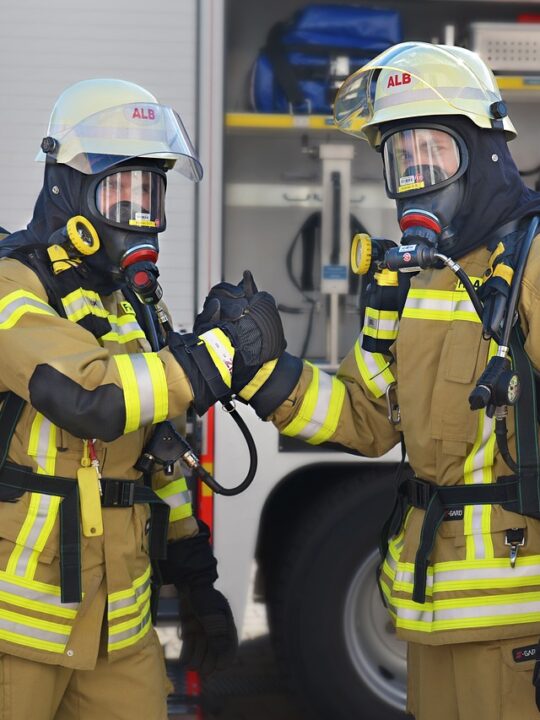 Every good nurse is a good communicator – it just isn’t possible to be one without the other. To succeed in the job, nurses will need to interact with everybody from the most poorly educated, confused, and nervous patients to specialist doctors who have long ago forgotten how to talk like ordinary people.
Every good nurse is a good communicator – it just isn’t possible to be one without the other. To succeed in the job, nurses will need to interact with everybody from the most poorly educated, confused, and nervous patients to specialist doctors who have long ago forgotten how to talk like ordinary people.
Academic writing, however, is something else. It’s a highly specialized form of communication designed to enable the exploration of complex concepts with minimal risk of misinterpretation. Anyone studying for an MSN will need to master it. Many people feel daunted by this because it seems very complex and formal. This may not come naturally to nursing students, especially if they are in the early stages of exploring their academic options. It is, however, something that any reasonably intelligent person can learn, and this article will help any nursing student to understand how.
Table of Contents
Learn from others
Every good writer begins as an enthusiastic reader, and that’s just as true with academic writing as it is with fiction. No matter how good various course tutors are at preparing nursing students to produce academic papers, the most important part of learning will come from reading them. It’s also vitally important, of course, to have an in-depth understanding of what has already been written in the field before nursing students make their own contributions, so in that regard they can kill two birds with one stone.
When reading, don’t just follow the arguments. Nursing students should pay close attention to the structure, and especially to parts they might ordinarily be tempted to skim. Note how the author embeds references in the next, and how different types of work are formatted to present all the relevant information to readers as clearly as possible. It’s really helpful to do this while in education so that if there’s anything nursing students are unsure about, there will be somebody around they can ask questions.
Schedule writing appropriately
How long does it take to write 500 words? How about 1,000? Practice will help nursing students to establish this, and to identify the differences with different types of writing – but scheduling isn’t all about the numbers. Individuals vary in what time of day they do their best writing, for example, and nursing students may find that factors like what and when they eat and drink are also significant. Then there’s the matter of dealing with pressure. Some people find that they do better if they leave writing until the pressure has built up a bit, though there are risks attached to that approach. Others find that they quickly feel overwhelmed by pressure, to the point where they struggle to write at all.
Nursing students need to figure out what works for them and adjust their schedules accordingly. They should leave enough time to deal with any emergencies that may crop up, whether writing-related or not. After the writing is complete, they will still need time to proofread and edit the work, and to make any necessary revisions. Students may also find that they need library access or similar resources to check facts.
Establish a reference system
There are several different systems for managing citations and other types of reference in academic works. Which one students use will often depend on the preferences of their course provider or the journal they hope to publish in. In other cases, they will find that nobody minds as long as it’s consistent throughout. several different systems for managing citations
It is a good idea for students to pick one of the most widely respected systems, if possible. This will make things easier if they decide to publish somewhere else at a later date. It will also make it easier for readers to follow, which helps to better communicate information and improves the chance of getting citations. Whatever students choose, they should understand it thoroughly and be extra careful when checking it for errors at the editing stage.
Reflect on the subject
When working nurses are busy with their studies, it can be difficult to find time in the day to just sit and let the mind become idle. This is important, however, for students to produce something useful as a writer. What marks out good academic writing is that sense of the big picture that only comes from spending time musing and mentally assembling pieces of a puzzle in different ways.
Nursing students will need time to explore the material that interests them on an instinctive level, not just approach it in a rational way, which can often be overly linear and thereby quite limited. Many people find that it helps to have people to discuss ideas with at this stage. This could be tutors or a supervisor, or fellow students so long as they won’t steal the work (something that becomes harder to get away with when talking to several people).
Furthermore, students may find that they don’t need people in the same role to understand the field – outsiders can sometimes be more helpful because they look at the work in a different way. Talking to them can also help nursing students to think through how they can set out ideas in a way that the average person can understand.
Plan thoroughly
Once the period of reflection is over, it’s time to start organizing thoughts and turning abstract ideas into solid points which students can back up with evidence. This usually begins with organizing the format of the piece. In most cases, students will have an established template to work from. Most papers detailing experiments use roughly the same format. Literature reviews use another, essays another, and so on. If writing for a journal or a prestigious project, students can check to see if there’s an established format that they are expected to adhere to.
Once the formatting of the piece is in place, nursing students can set out their arguments within it. They should pay close attention to the word count and be realistic about how much depth they can go into. As they build up a body of work, cross-referencing will enable them to get around some of the frustrations of this process. Students should structure it so that they have created space appropriately between the points they want to make, rather than starting to write and discovering too late that they don’t have enough space left for a proper conclusion.
Research
After determining what to write in a given piece, and how the argument should be structured, students can track down the evidence they need to support it.
Nursing students should already have a very good idea of what evidence exists. Good academics are led by the evidence rather than cherry-pickling it to suit their theories. Students should be extremely careful to avoid confirmation bias. To do this, they will need access to a variety of academic resources. These could include an academic library, whether physical or virtual. Students often have access to one of these through their learning institution, but there are also public institutions designed with a similar purpose in mind – everything from the Library of Congress on down.
Students are also likely to need access to journals. Their learning institution should be able to arrange this for free. Some larger hospitals and clinics also have access arrangements, as do the most prominent nursing unions and associations. For nursing students without this support who cannot afford to pay for access to all the journals required, can try writing to academics directly. They will often be happy to send students with copies of their papers for free, and even to discuss them or provide additional insight.
Focus on strengths
Nursing students should consider their strengths regarding writing. One of the advantages of planning out writing before starting is that students don’t need to do the actual writing in a linear style. If, for example, they are describing an experiment and explaining the methods is proving tricky, they can leave that and write about their findings instead, then go back to it when they can do a better job.
While nursing students should be wary of leaving all the hard parts to the end, they can schedule them for times when they are likely to be feeling more energetic and have the fewest distractions. Students can also shape the overall piece of work to play to their strengths, putting most emphasis on the areas where they have the most natural talent. Identifying weaker areas early on means that students can seek out help where necessary.
Proofreading, editing, and revisions
Although a lot of people find it tedious, proofreading is an important part of the process of producing high quality academic material. Nursing students can hire a professional to do it, but there are still likely to be things they will need to check themselves.
Furthermore, every nursing student should do a final read-through, as the precise use of language is essential to academic writing and where there is ambiguity, only the writer can know exactly what they meant to say.
Students should do their best to finish work with sufficient time ahead of deadlines, so that they needn’t proofread when tired, which makes it much harder to do a good job. This will also allow time for more in-depth editing and for making the hard decisions if something needs to be removed. It will allow for additional research if a part of the argument is poorly supported and allow time to move pieces of the text around if the overall argument makes more sense when approached in a different way. This is surprisingly common in longer pieces of work like dissertations.
Respond positively to criticism
One of the most useful things a writer can receive is intelligent criticism. In fact, even unintelligent criticism should teach them something, because their job is to communicate. Any criticism can enable them to refine what they have to say so they can make even the most complex points as widely intelligible as possible.
It is really important for nursing students to engage with criticism as an opportunity, rather than allowing it to make them angry or anxious. They shouldn’t feel upset or offended if somebody sees their work as less than perfect because no serious, credible academic expects to be perfect. Most are engaged in a constant process of striving to improve.
This, of course, reflects wider aspects of what it means to be a nurse depending on good communication skills and ongoing learning to excel at the job. Students who participate in ADN to MSN NP online programs, for example, will have the opportunity to engage in peer-to-peer criticism with fellow students. This sharpens their understanding of the subject and the writing processes as they go. At Wilkes University, students will also have a dedicated student success counselor who can help them to find the support they need to develop academic writing skills to the highest level.
Success with academic writing
Academic writing may look difficult. However, the rules – even though they vary in different circumstances – are not difficult for nursing students to master. There is lots of help available and, with practice, nursing students will find it easy enough to master the basics. How far they can go beyond that will depend, in the end, on the value of what they have to say – but that is what they are in education to find out!







